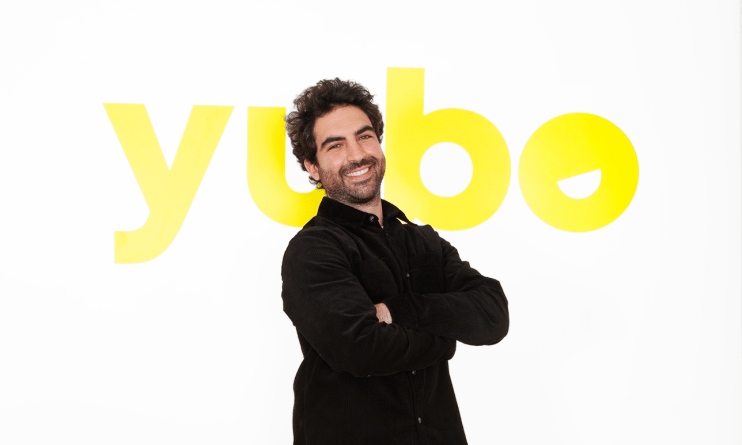Exclusive: Friendship app Yubo to expand workforce 10-fold this year, says CEO

In a year that saw UK schools close their doors and social gatherings move to video platforms, Gen Z ‘friendship’ platform Yubo saw live streams increase by 550 per cent, with streamers spending an average of two hours per day on the app.
Since its launch in 2015, the platform that connects people based on shared interests has climbed to 43m users in about 40 countries around the world.
With the UK firmly on Yubo’s radar as one of its key growth markets, the Paris-based company opened a London office in September of last year and lured Benjamin Trigalou, Waze’s former product lead, to lead its coverage of the British market.
City A.M. caught up with Sacha Lazimi, founder and CEO, to discuss the company’s plans for the UK, as well as the rise in friendship apps’ popularity amongst Gen Z.
Your friendship app is somewhat of a hit among younger users in the UK. So how should we see this, are you a Whatsapp, a Snapchat, a Facebook? What do you want to be?
We get asked this a lot, and it’s tough because we don’t compete with Whatsapp, Snapchat, Facebook or any of the other platforms you can think of and it has never been our intention to. Our users come to socialise with people they don’t know. Gen Z is hungry for genuine online interactions without the pressure of ‘how many likes’ content gets. So, we designed the platform for a Gen Z audience to socialise online, without influencers or passive scrolling. Our users will never share content and then wait for the likes, comments and interactions to roll in because we’re not designed like that. We facilitate real-time interactions and group discussions.
So when the entire country, including school children, teenagers and students, moved online following the outbreak of the Corona pandemic, you must have benefited from this.
Well, in 2020, we saw live streams increase by 550 per cent, averaging 130K a day, each lasting around two hours. One live stream even topped 532 hours. But we launched Yubo in 2015, so our vision was born well before the pandemic, although there is no denying that the impact of 2020 has certainly solidified our place in the market, accelerated our growth and driven more users to sign up. Our model [of] allowing users to meet people sharing the same interest over the world, rather than a platform focused on influencer or content, has propelled our growth because we recognised that need.
How has the pandemic impacted your investment decisions?
We had to scale our technology, and do it quickly. We also had to hire a lot more people to deal with the issues that come hand in hand with accelerated growth and to ensure we continue to meet user demand and expectations. This is an ongoing investment for us at the moment. We also completed a large Series C funding round of $47.5m, which closed in the last quarter of 2020, taking us to just over $60m raised in less than a year.
No users come to our platform to make money, and there are no influencers for people to gather around
It seems most companies like yours get the most growth out of live video streaming. Is that where the future lies?
It’s about more than live streaming. It is of course extremely important, and without this technology our platform would not work, but live streaming tech is simply facilitating our overall goal: enabling Gen Z to make connections in the digital world. It may seem inconceivable to someone who didn’t grow up surrounded by technology in the way Gen Z has, they are the first true digital natives after all. They are more open to socialising online, our platform favours people who want to meet like-minded individuals, share experiences and make connections.
You opened a UK office in London in September of last year, and hired Benjamin Trigalou, from Waze. Looking ahead at 2021, where do you see opportunities for growth?
We have ambitious international growth plans. We will expand the community in Southeast Asia, Japan, Taiwan, and South Korea. Our aim is to open offices in every key region, in particular strengthening our presence in the US and continuing to grow our UK team. Like I said, we plan to multiply our workforce by 10, which is no small feat.
Finally, privacy and data protection issues are increasingly a concern. How do you deal with that?
Yes, privacy and data protection are a concern, and rightly, especially as we cater to younger audiences with many users below 18. We take both extremely seriously, always have done and always will do. We have built a ‘freemium’ business model, where our users can buy premium features. This means we do not rely on making money from advertising and we don’t have any on our platform at all. We also do not sell our users’ data, no users come to our platform to make money, and there are no influencers for people to gather around.